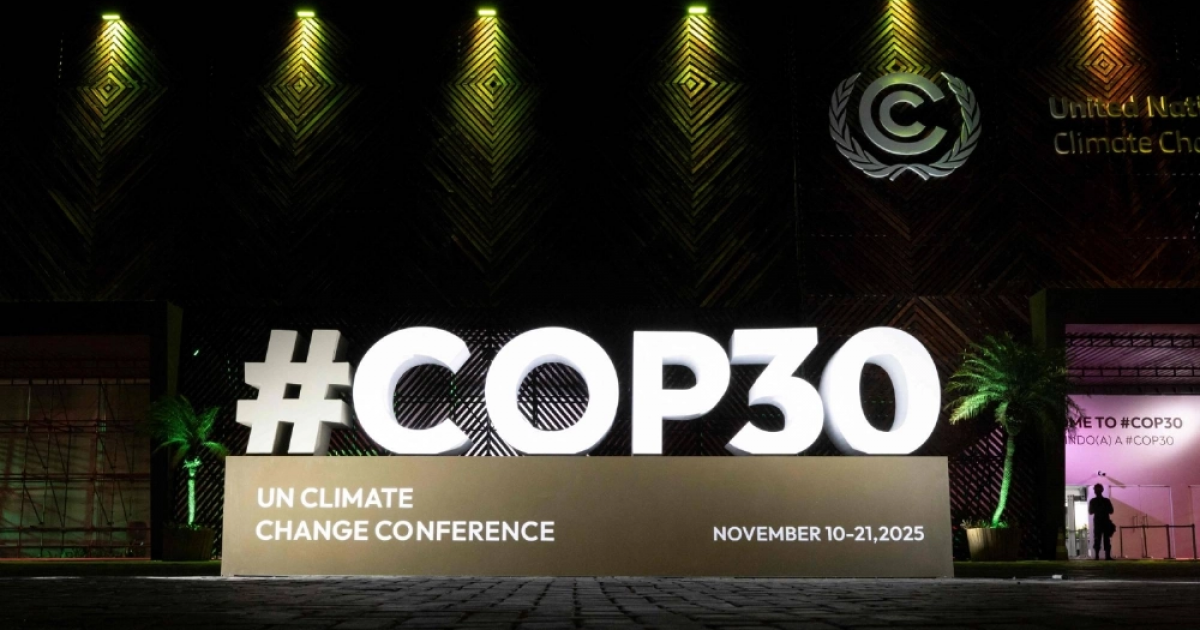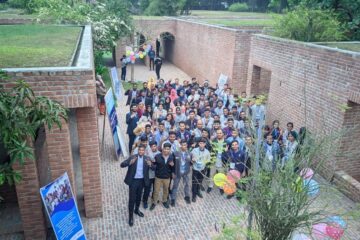As the world’s attention turns to Belém, Brazil, for the 30th United Nations Climate Change Conference (COP30), expectations are muted amid political divides, financial shortfalls, and fading global ambition.
The two-week summit, hosted in the gateway to the Amazon rainforest, brings together delegates from around 150 countries to shape the next phase of climate action. But even before the conference opens, diplomats and observers warn that COP30 is unlikely to deliver the breakthroughs needed to keep the 1.5°C target within reach.
Low expectations amid global climate fatigue
A decade after the Paris Agreement, the momentum that once propelled the global climate agenda has slowed. Rising emissions, unmet financial pledges, and geopolitical distractions have eroded trust in multilateral climate diplomacy.
“The world is struggling to turn words into action,” said one European negotiator ahead of the talks. “The real test for COP30 is whether it can move beyond speeches and deliver enforceable commitments.”
COP30 takes place in a year marked by overlapping crises — energy insecurity, inflation, and political polarization — all of which have dampened enthusiasm for bold collective action.
Participation falls sharply
According to the UN Framework Convention on Climate Change (UNFCCC), just 12,200 delegates have registered for COP30 — a steep decline from 84,000 in Dubai (COP28) and 54,000 in Baku (COP29).
Brazil had initially expected around 45,000 participants, but logistical bottlenecks, limited hotel capacity, and high travel costs have forced many countries to scale down their delegations. Despite preparing 53,000 beds, Belém’s mayor admitted the city is “stretched to capacity.”
Still, Brazil aims to use this moment to reinforce the message that the Amazon rainforest — the planet’s lungs — must remain central to global climate diplomacy.
Bangladesh pushes for climate justice
Bangladesh, one of the most climate-vulnerable nations, has arrived at COP30 with a focused agenda emphasizing justice, adaptation, and finance.
Although Chief Adviser Prof Muhammad Yunus, environmental adviser Syeda Rizwana Hasan, and Secretary Farhina Ahmed are not attending, Dhaka’s negotiation team has been tasked with advancing five key national priorities:
- Adopt a new global climate finance goal of USD 300 billion annually by 2035, beyond the delayed USD 100 billion commitment.
- Operationalize the Loss and Damage Fund by 2026, with direct access for the most affected countries.
- Double adaptation finance by 2025, prioritizing locally led, gender-responsive, and youth-driven projects.
- Ensure a just energy transition that protects jobs and ensures equitable access to renewables.
- Enhance regional cooperation with Bhutan and Nepal on transboundary climate resilience.
“Our people are already paying the price of global inaction,” said Roufa Khanum, assistant director at C3ER, who joined COP30 as part of the government delegation. “COP30 must deliver accountability and justice, not just another round of promises.”
Host nation puts the Amazon at center
Brazil has positioned COP30 as a turning point for tropical forest protection. In the months leading up to the conference, President Luiz Inácio Lula da Silva launched a series of initiatives showcasing the Amazon as a global asset.
The government is promoting the Tropical Forests Forever Facility, a financial mechanism to reward countries for conserving biodiversity and preventing deforestation.
“Brazil wants to prove that protecting the Amazon is not just an environmental duty, but an economic opportunity,” said a senior official from Brazil’s environment ministry.
Yet the government has faced criticism for approving new oil exploration projects in the Amazon basin just months before COP30, raising questions about its climate credibility.
Amazon and indigenous voices take stage
Belém’s selection as host city has brought Indigenous activism to the forefront of global negotiations.
A flotilla of Indigenous leaders is sailing down the Amazon River to deliver their demands directly to world leaders. Many plan to camp near the summit venue to symbolize their role as guardians of the forest.
“We have protected this land with our lives for decades,” said Sonia Guajajara, Brazil’s Indigenous activist and minister. “If the Amazon falls, the climate will collapse with it.”
Expert view: Dr Ainun Nishat on Bangladesh’s path forward
Speaking with Dhaka Tribune, Professor Emeritus at BRAC University and one of Bangladesh’s foremost climate experts, Dr. Ainun Nishat, said Bangladesh must define its objectives at COP30 with precision and purpose.
“We must decide clearly what we want — whether it’s finance, adaptation, or technology transfer. Without focus, we risk being lost in the noise.”
He underscored that access to climate finance must remain Bangladesh’s central demand.
“Finance is the foundation of climate justice. If vulnerable countries like ours cannot access the Loss and Damage Fund directly, these pledges remain symbolic. We need systems that prioritize local ownership, not donor control.”
Dr. Nishat also warned against overreliance on global pledges, calling for regional solutions.
“South Asia must cooperate beyond conferences. Shared river management, cross-border renewable energy, and climate-smart agriculture are areas where we can act now.”
He added that Bangladesh should position itself as a model of resilience and innovation, not merely as a victim.
“We have learned to adapt — from floating farms to cyclone shelters — and these lessons have global value. COP30 should recognize the countries that lead from the frontlines.”
On expectations from the summit, he remained realistic but hopeful: “We should not expect miracles from Belém. But every COP is a chance to shape the next decade of action. Bangladesh must return with a clear understanding of what progress was made and what battles lie ahead.”
A summit of symbolism and skepticism
As negotiations begin, the stakes are high but optimism is limited. COP30 may not produce sweeping new treaties, but it will determine whether global cooperation on climate can survive deepening political divides.
For Bangladesh and other vulnerable nations, the crisis is not theoretical — it is immediate. Rising seas, cyclones, and salinity are already displacing communities and reshaping livelihoods.
“If COP30 fails to deliver tangible outcomes,” warned Nishat, “it will not just be a diplomatic failure — it will be a setback for humanity.”



